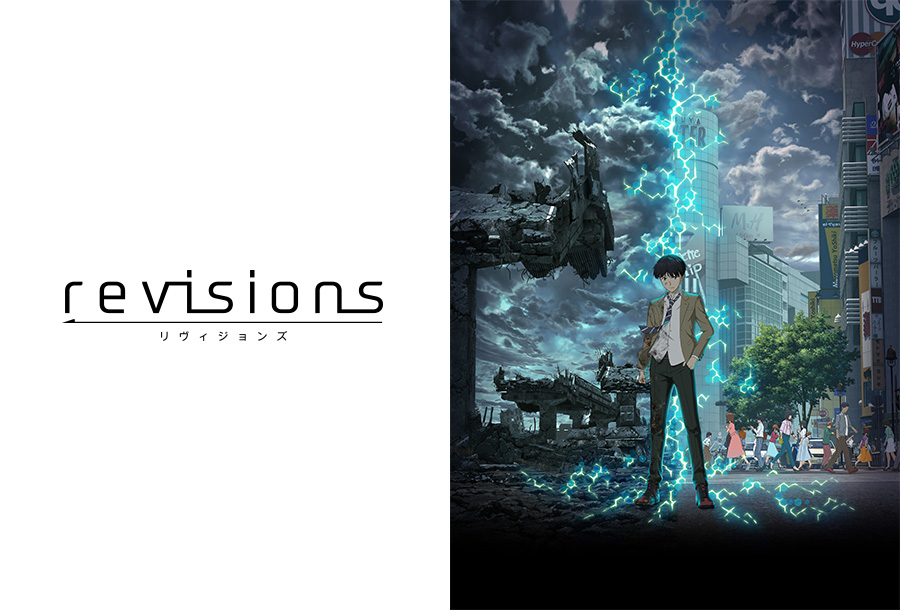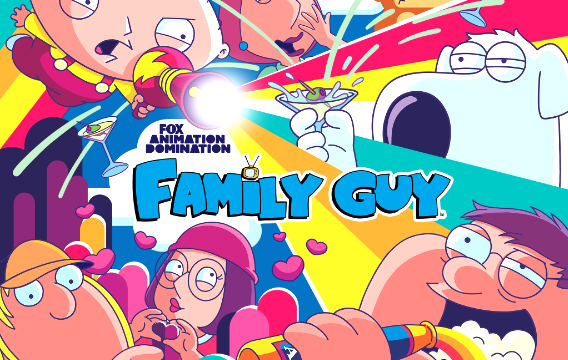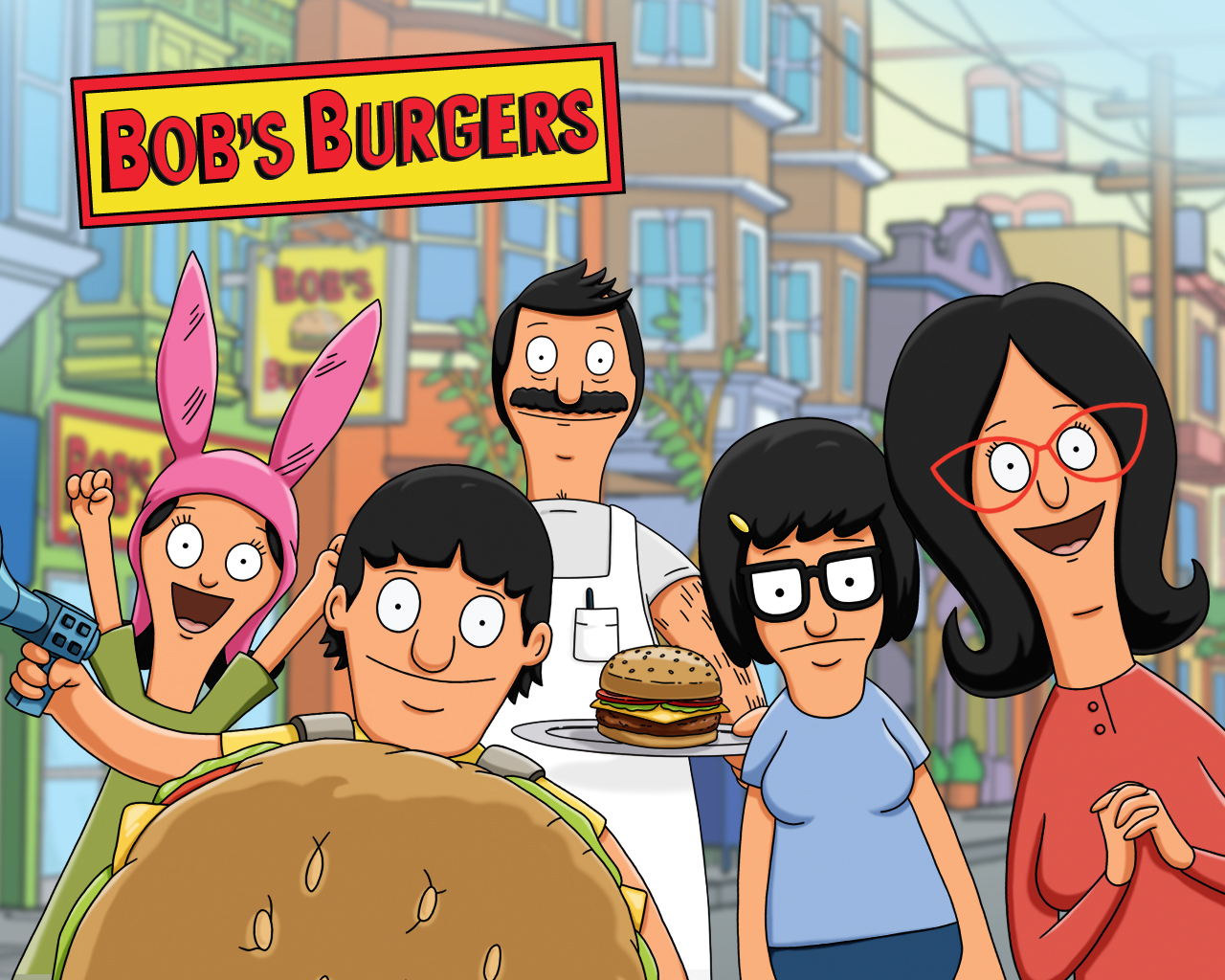English Dub Season Review: Revisions Season One
So, it’s kind of like Power Rangers, but if the red ranger was a man-child. Somehow, it still works.
Overview (Spoilers Below)
In the year 2010, a child named Daisuke is kidnapped by an unknown assailant. His four friends, Gai, Marimari, Lu, and Keisaku go to search for him, and he is ultimately saved by a mystery woman named Milo. Before she disappears, she tells Daisuke that his destiny is to protect everyone because only he can save them. Seven years later, Daisuke has taken her words to heart. He has alienated everyone in his life—including his friends—in order to prepare for this unspecified disaster. Only Keisaku will still be anywhere near him. Even Daisuke starts to have his doubts when suddenly grotesque monsters attack their home district of Shibuya, and the entire area is transported hundreds of years into the future.
Now, in the year 2388, the five friends are united with Milo, who is actually a member of a radical time-traveling faction called AHRV fighting a war against these creatures, called the Civilians. AHRV has created three mech suits that only the five friends can pilot, and so they are drafted into the future conflict. Daisuke, who has been training for this his entire life is thrilled, and Gai and Lu both rise to the occasion. Marimari is afraid to pilot the mech suits, called String Puppets, and Keisaku is proficient but reticent to use the machines. Meanwhile, the entire district slowly acclimates to the harsh world of the future. The city’s police chief and mayor are divided on which side to take in the conflict. The mayor wishes to capitulate to the Civilians in the hopes of returning home immediately, but the chief believes in AHRV and the power of the mech suits.
It turns out that neither one is completely right or wrong. The Civilians kidnap a number of Shibuya citizens, and it is revealed that they are future humans who were infected with a terminal disease much like cancer. They kept themselves alive by harvesting healthy cells from living humans, and only transported Shibuya to the future to replenish their supplies. AHRV, for their part, allowed this to happen in order to turn the residents of Shibuya against The Civilians so that they would prepare against them when they were returned to the past. Furthermore, it turns out the mech suits are made of dead civilians, AKA humans. Milo neglected to tell anyone in Shibuya any of this.
Meanwhile, the town has begun to resent the mech suit-piloting teens, as they are treated like royalty inside the dying city. After a pair of power grabs by the mayor and a failed rescue mission get the police chief killed and wipe out the mech suit’s power supplies, Keisaku dies himself. A member of the Civilians absorbs his essence, allowing him to exist in all times at once. Daisuke tries to stop him, but it is revealed that he was never the chosen one to stop the Civilians, Keisaku was. Daisuke and Milo travel back to 2010 to change history so that Daisuke can defeat the Keisaku/Civilian hybrid and return Shibuya back to its original time. They do so, but at the cost of Keisaku’s life. Daisuke and his friends swear they will find a way to bring him back, while Milo sees that the Civilians are transporting even more cities to the future.
Our Take
This one definitely surprised me. Time travel is a tricky business, and the most common way of dealing with it in modern stories is to de-emphasize the mechanics of temporal displacement in the first place. Not Revisions, though, it manages to keep the focus on the time-hopping, and while not quite making sense (no time travel fiction really does), it never failed to wrinkle my brain. The majority of the series is spent in 2388, but the portions in 2017 and 2010 are navigated deftly.
Another thing I certainly didn’t expect was the show’s focus on the politics of Shibuya as the district continued to fall into chaos. These kinds of sci-fi action shows can easily get by with pretty much infinite thoughtlessness and still be considered entertaining (God knows I’ve reviewed my fair share). But that isn’t good enough for Revisions. The show deeply considers the impacts of the majority of its actions, and buried underneath all of the jargon and melodrama is a very serious rumination on both governance and the privilege allowed to those who keep us safe. While the town was transported to 2388, it could have easily been 1588, the way the mech suit-wielding teens were treated like knights.
The place the show drops the ball, though, is the characters. This is where the show relies too much on archetype, and in the case of Daisuke falls right into self-parody. Daisuke threatens to crush the entire show under the sheer weight of his grating personality. He’s immature, selfish, and wildly self-aggrandizing, and while the story tries to tell me that he learns his lesson, all of his time meddlings are only in service of making him look good. In the final episode of the series, Daisuke must go back to his own kidnapping to save his friend from death, and one of the first changes he makes to the past is to tell his own friend (as a nine-year-old) to always believe in him. At around the midpoint, Milo is going back to that same time period and point-blank asks Daisuke if she should repeat to him the lie about his destiny (a lie which set off Daisuke’s entire garbage personality) and Daisuke says yes. The show thinks that this is a good thing, and then it spends the remaining episodes bending over backward around its own logic to make that prophecy come true.
There are a few other characters (Gai really comes to mind) who don’t stick the landing as far as being more than one note goes, but none of them hold a candle to Daisuke. The female characters could be better-rounded, and the story could have tried at least a little bit to save Keisaku from suffering at every conceivable turn for no reason, but I would take all of that and more if Daisuke’s allowance of the word ‘destiny’ were curbed by even ten percent.
There are some other first-season anime issues as well. AHRV is constantly mentioned throughout the first season, and it’s very clear that they will be major players in future seasons, but their complete obfuscation gives me no reason to care about them. It was fine when the show was in its first half where everyone was in the dark about everyone else’s motives and capabilities, but as the show wore on, the lack of AHRV accountability became annoying. War certainly does make for strange bedfellows, but AHRV providing one troop, three mechs, and no ground support, even during a full-scale invasion is pretty unforgivable. To that end, Milo continues to serve with AHRV, even after the show lets us know they have been psychologically abusing her since she was a child. I know that the show is sure to deal with this in later seasons, but it goes rarely remarked upon and never acted upon throughout season one, stretching credulity a bit.
All of that said, I think—if you can get past Daisuke—this is definitely a show worth watching, I came in expecting a sci-fi punching contest, but I got a pretty thoughtful small-town survival story. There are very few surprises that I’m more interested in than something like that. It puts a few genre tropes in a blender and then ages the resulting puree. It might not be what you expected going in, but it is oddly satisfying.

























"There are also other characters that come and go (also owned by the Warner Bros. Discovery conglomerate media company)."
Huh. Is that just referring to other characters from the show itself, or is this implying that the new season is going to have cameos from other WBD IPs